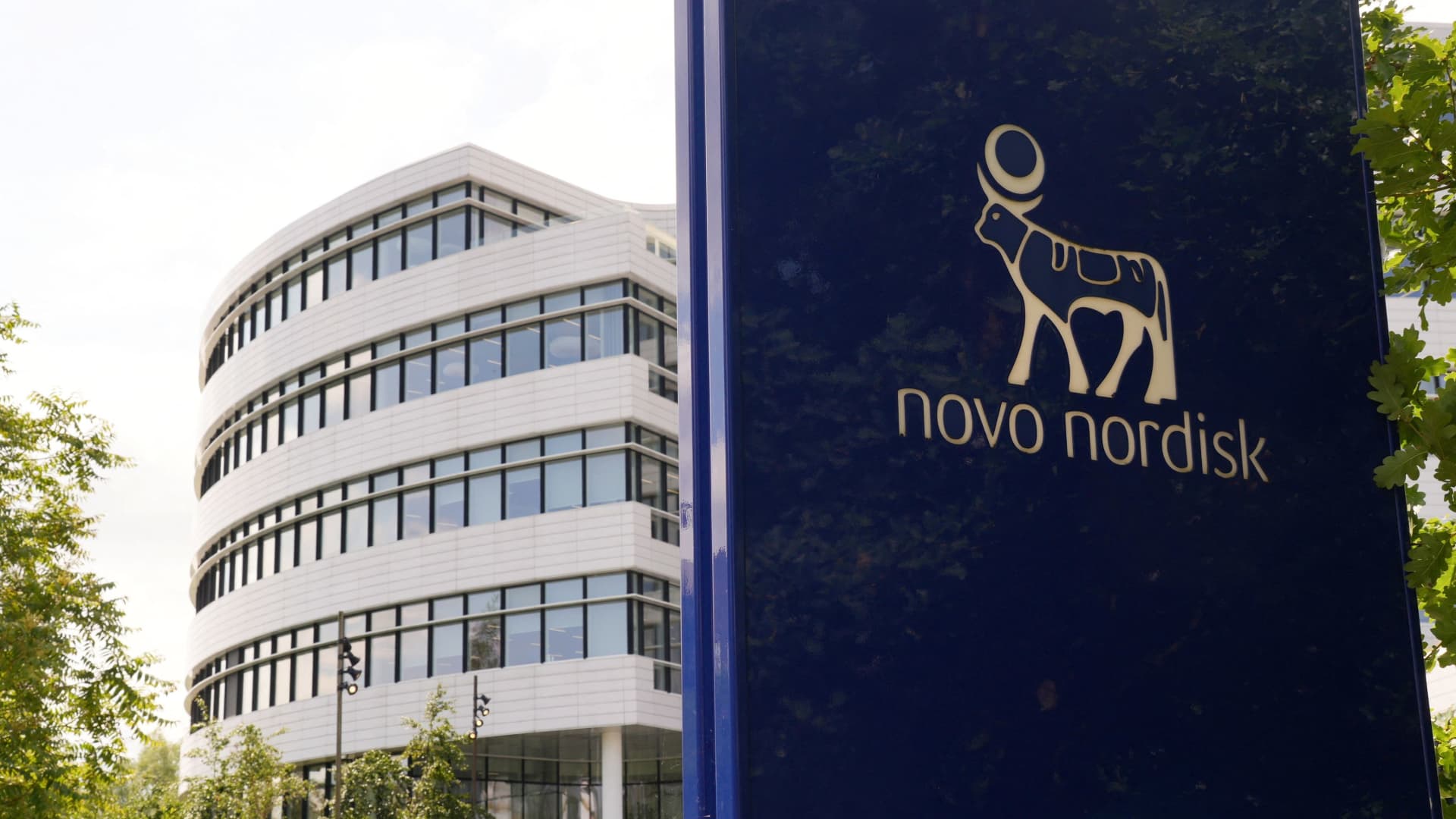Novo Nordisk Shares Dive After Alzheimer's Drug Trial Fails Main Goal; Semaglutide Misses Key Target
 Denmark
Pharmaceuticals
Denmark
Pharmaceuticals

Novo Nordisk's semaglutide failed its Alzheimer's disease trial, not meeting the goal to slow cognitive decline. Shares plunged, highlighting challenges despite
Novo Nordisk Faces Setback as Alzheimer's Trial for Semaglutide Fails to Meet Primary Goal
Pharmaceutical giant Novo Nordisk experienced a significant blow this week as its eagerly watched trial for an Alzheimer's disease treatment, utilizing the active ingredient semaglutide, failed to achieve its main objective. The news sent the Danish company's shares plummeting to a four-year low, wiping out a substantial portion of its market value.
The trial aimed to assess whether semaglutide, the same active component found in Novo's highly successful diabetes and weight-loss medications Ozempic and Wegovy, could slow the progression of Alzheimer's disease. Specifically, the ambitious target was to reduce patients' cognitive decline by at least 20%. Despite showing improvements in Alzheimer's-related biomarkers in separate studies, this crucial biomarker translation into delayed disease progression was not realized in the primary trial.
A "Lottery Ticket" That Didn't Pay Off
Analysts had tempered expectations prior to the results, often referring to the trial as a "long shot." Novo Nordisk itself had candidly described the endeavor as a "lottery ticket," acknowledging the inherent challenges. Martin Holst Lange, Novo's chief scientific officer, articulated the company's rationale: "Based on the significant unmet need in Alzheimer's disease as well as a number of indicative data points, we felt we had a responsibility to explore semaglutide's potential, despite a low likelihood of success."
Following the announcement, Novo's stock initially plunged 10% in afternoon trading, hitting 274 Danish kroner ($42.33), its lowest point since mid-2021. Although the shares regained some ground, they still closed the session down by 5.8%. This latest development adds pressure to a company that has seen its stock price halve year-to-date, amidst heightened competition, particularly in the vital U.S. market, and several downward revisions of its financial guidance.
The Challenging Landscape of Alzheimer's Treatment
Alzheimer's disease, the most prevalent form of dementia, presents a formidable challenge for medical science. As global populations age, the incidence of this debilitating condition is projected to rise significantly. While existing treatments like Eli Lilly's Kisunla and Biogen/Eisai's Leqembi offer some hope by slowing disease progression by up to a third, they are often accompanied by severe side effects. Interestingly, shares of Eli Lilly and Biogen saw modest gains following Novo's announcement, underscoring the competitive nature of the pharmaceutical sector.
Novo's decision to investigate Rybelsus, an oral formulation of semaglutide, in Alzheimer's patients was partly spurred by real-world data suggesting a link between semaglutide use and Alzheimer's outcomes. Semaglutide operates by mimicking GLP-1, a gut hormone that naturally regulates blood sugar and promotes satiety. While the precise mechanism for its potential benefit in Alzheimer's remains speculative, the prevailing theory centers on its possible role in targeting neuroinflammation, a factor believed to contribute to the disease's progression.
Top-line results from the trial are slated for presentation at the Clinical Trials on Alzheimer's Disease conference on December 3rd, with a more comprehensive data release expected at the 2026 Alzheimer's and Parkinson's Diseases Conference in March.
Internal Changes Amidst Market Pressures
The trial's failure comes at a tumultuous time for Novo Nordisk. The company recently underwent significant leadership changes, replacing its chairman and half of its board members due to disagreements with its controlling shareholder, the Novo Nordisk Foundation, regarding the pace and scope of necessary transformation. This followed the departure of former CEO Lars Fruergaard Jørgensen after an eight-year tenure, also linked to the company's stock decline. New CEO Mike Doustdar has since initiated a strategic pivot, refocusing the company's commercial efforts on its core obesity and diabetes franchises and implementing a global workforce reduction of over 10%. These internal shifts reflect Novo's determination to navigate a fiercely competitive market, where rivals like Eli Lilly have surged, recently achieving a staggering $1 trillion market capitalization.

